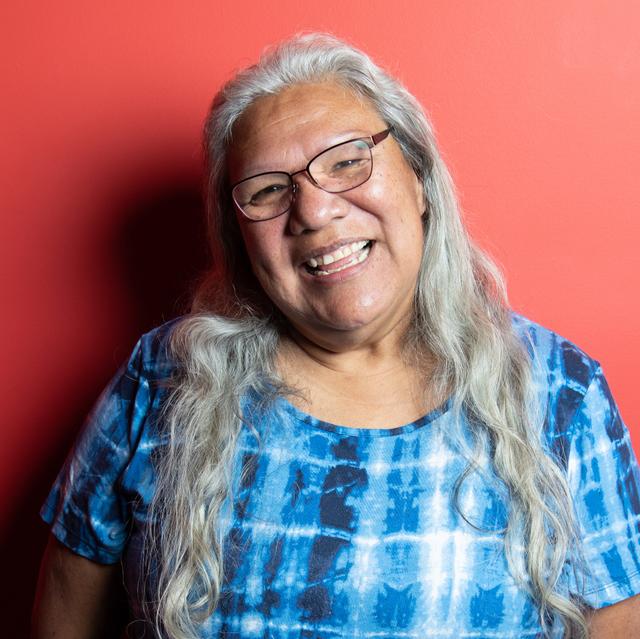Filmmaker Peter Bratt is a Rockefeller Fellow, a Peabody Award winner, an Emmy-nominated, award-winning film director, writer, and producer, and a social justice activist.
He wrote, produced, and directed DOLORES, a feature documentary about Civil Rights icon and former United Farmworkers leader Dolores Huerta, and executive-produced by legendary musician Carlos Santana. The movie debuted at the 2017 Sundance Film Festival and has won numerous awards, including a 2018 Peabody Award and a Critic’s Circle Award.
More recently, Peter directed and executive produced CORAZON DE AMERICA for ABC News (now available on Hulu) which was the most widely-watched episode of the network's SOUL OF A NATION series.
Of Peter's first feature film, acclaimed novelist Alice Walker declared FOLLOW ME HOME, “a work of genius.” FOLLOW ME HOME premiered at the 1996 Sundance Film Festival and won the Best Feature Film Audience Award that same year at the San Francisco International Film Festival. The film had a limited release, but was hailed by Angela Davis, Cornel West, and other social critics and communities, eventually becoming a "cult classic."
Peter also wrote and directed the feature, LA MISSION, which he co-produced with his brother Benjamin who also stars in the film. LA MISSION premiered at the 2009 Sundance Film Festival, received the prestigious Norman Lear Writer’s Award, and was one of ten American independent films selected by Sundance and the President’s Committee on Arts and Humanities to launch Sundance Film Forward, a program that uses film and conversation to excite and introduce a new generation to the power of story.
Born and raised in San Francisco by a strong, Indigenous single mother from Peru, Peter's family was part of the American Indian Occupation of Alcatraz, the Wounded Knee stand-off, and the Farmworkers Movement. As a consultant, organizer, and community member, he has worked with the International Indian Treaty Council, Amazon Watch, Friendship House Association of American Indians, H.O.M.I.E.S., and Instituto Familiar De La Raza.
Peter Bratt is available for keynotes as well as post-screening discussions of his films:
• The Role of Film in Lifting Up Representation
• Art and Social Justice
• Organizing in Native American and Latinx Communities
Dolores
Dolores Huerta is among the most important, yet least known, activists in U.S. history. An equal partner in co-founding the first farm workers unions with Cesar Chavez, her enormous contributions have gone largely unrecognized. Dolores tirelessly led the fight for racial and labor justice alongside Chavez, becoming one of the most defiant feminists of the twentieth century—and she continues the fight to this day, at 87. With intimate and unprecedented access to this intensely private mother to eleven, the film reveals the raw, personal stakes involved in committing one’s life to social change. Winner of the Audience Award, Best Documentatry Feature at the San Francisco Film Festival and the Montcalir Film Festival; Best Feature Film at the Houston Latino Film Festival; and Best Documentary Feature at the Seattle International Film Festival, to name some of the awards it's already garnered.
“Exuberantly inspiring… makes you want to march and dance.” — David Talbot, San Francisco Chronicle
“A documentary of exceptional storytelling power.” — Joanne Butcher, CineSource
“Energetic, engaging” — Dennis Harvey, Variety
La Mission
Growing up in San Francisco’s Mission District, Che Rivera (Benjamin Bratt) has always had to be tough to survive. He’s a powerful man respected through-out the barrio for his masculinity and his strength, as well as for his hobby building lowrider cars. At the same time, he’s also a man feared for his street-tough ways and violent temper.
A reformed inmate and recovering alcoholic, Che has worked hard to redeem his life and do right by his pride and joy: his only son, Jes, whom he raised on his own after the death of his wife. Che’s path to redemption is tested, however, when he discovers Jes is gay. In a rage, Che violently beats Jes, disowning him. He loses his son – and loses himself in the process. Isolated and alone, Chec comes to realize that his patriarchal pride is meaningless to him, and to maintain his idea of masculinity, he’s sacrificed the one thing that he cherishes most – the love of his son. To survive his neighborhood, Che has always lived with his fists. To survive as a complete man, he’ll have to embrace the side of himself he’s never shown.
“La Mission is a haunting story of healing and transformation: the healing of a broken man, of a father’s relationship with his son,
and of a neighborhood struggling to break the chains of violence. — Sundance Film Festival 2009
“Sensitively told but unflinching in its determined frankness about several prickly, taboo topics, La Mission delves into the emotional thickets of homophobia,
ethnic identity, domestic as well as street violence, and generational conflict.” — Reed Johnson, **Los Angeles Times **
“A heartfelt production from brothers Benjamin and Peter Bratt about the San Francisco neighborhood where they grew up…” — James Greenberg, Hollywood Reporter
Follow Me Home
Follow Me Home is a defiant, humorous, poetic tale exploring race and identity. Weaving together traditions of Native, African and Latino cultures, the film tells the story of four artists and their journey across the American landscape. Tudee (Jesse Borrego), Abel (Benjamin Bratt), Kaz (Calvin Levels) and Freddy (Steve Reevis) are joined by Evey (Alfre Woodard) an enigmatic African Ameri-can woman on a journey of her own.
The film earned Bratt the Best Director award at the 1996 American Indian Film Festival and the Best Feature Film Audience Award at the 1996 San Francisco International Film Festival. It was also an Official Selection in the 1996 Sundance Film Festival.
"...a work of genius." — Alice Walker, Pultizer Prize winning author
"Follow Me Home is a dazzling film that not only confronts the nightmare of today's dehumanized, racist society, but also suggests how
we might build a different world." — Elizabeth Martinez, award-winning Chicana writer and activist
"The collision of race, identity, history, and culture affects all Americans....'Follow Me Home' provides a point of entry to a long-overdue discussion." — Jill Nelson, The Nation











